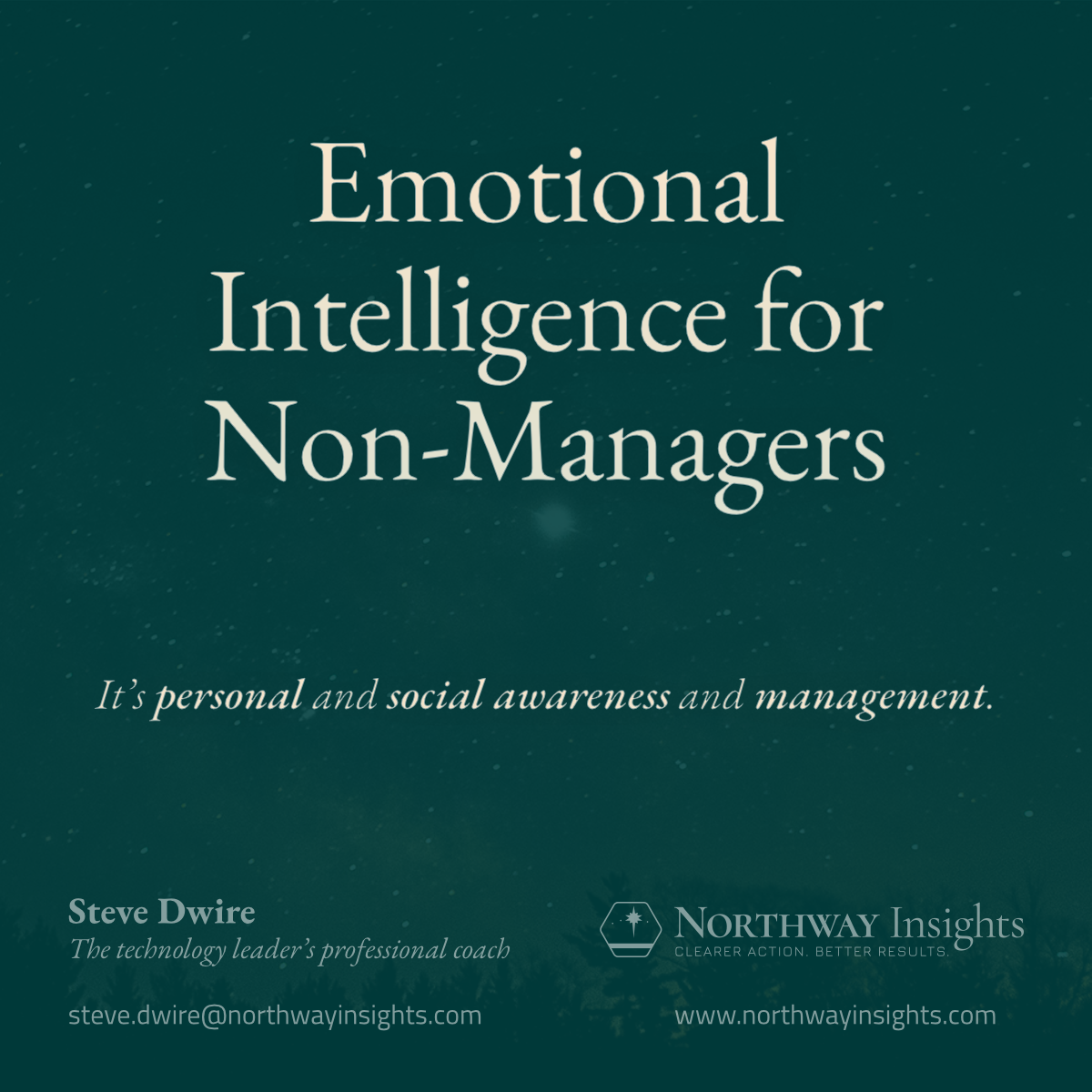Someone told me recently, “I don’t want to go into management, because I’m not good at dealing with people problems.”
Becoming a manager is a complete career change, so I’m not about to pressure anyone into management. But I do encourage people to explore that self-limiting identity that says, “I’m not good at dealing with people problems.”
Wherever there are people, you’ll find people challenges. And any difficulty you have in dealing with those challenges is going to affect your success, regardless of what kind of position you hold. Because in an organization, work gets done by interactions between people. Even if it’s not in your official job description, the way people feel when they interact with you will affect the quality of the work that is done both immediately and in future collaborations.
“Emotional Intelligence” or EQ is the buzzword that formal leaders use when talking about how we interact with other people. But in its simplest form, EQ is just two ideas, each with two applications.
The two applications are internal, for yourself, and external, in dealing with others. The two ideas are awareness and management.
Internal awareness starts by first admitting that your own emotions exist, and they affect your behavior and your decisions. In fact, various studies have concluded that even for logical people, between 70% and 90% of decisions are based on emotion. Logic is used, at best, as a sanity check for the decisions our emotions propose for us. Internal awareness also involves sensing your own emotions when they’re happening, and recognizing the specific influence they have on you.
Internal management, then, represents the choices you make by logic, because of what you know about your emotions.
External awareness builds on your internal awareness, but goes much farther. It’s the ability to understand what emotions other people are feeling or are likely to feel in a given situation or in response to something you may do or say. This gets tricky because we naturally tend to believe that other people think and feel like we do. External awareness depends on your ability, over time, to be honest with the evidence you see that either confirms or corrects your beliefs about what other people feel.
External management happens when you use both your internal and external awareness to adjust how you interact with other people so that you can steward those relationships and their emotions in a way that is positive for everyone.
If you’re part of an organization, then your awareness and management of your emotions and those of others has a huge impact on the value you bring to the organization, with or without a formal management or leadership role.
But awareness is hard to achieve alone. And it’s one of the greatest benefits of working with a coach.
If you’d like to gain greater awareness and management to build your emotional intelligence, let’s talk.
Visit https://stevedwire.com/connect for a complimentary conversation to see if I’m the right coach to help you be more effective in your organization.


Leave a Reply